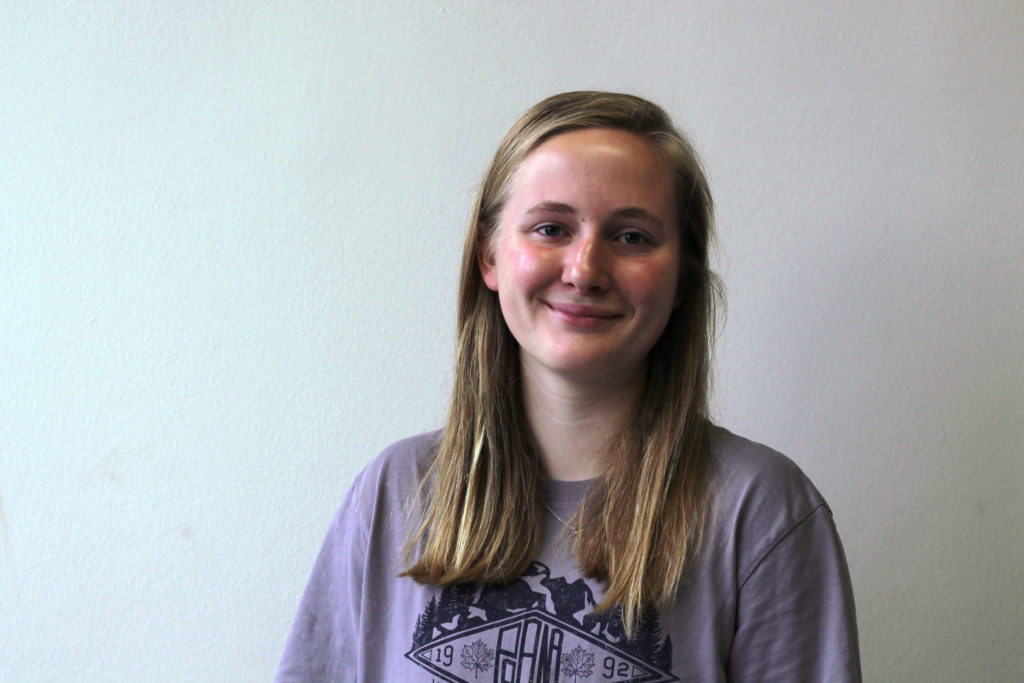
by Emily Caldwell, staff reporter
“Ok, so to start it off, I want you all to look around the room. Let it be known that the most privileged person in America is the white heterosexual male. Look around and you will notice that there are NO white heterosexual males in this room. I want you to think on that. Think on the fact that the people who need to be here for these conversations, the people that need to hear these things, choose to avoid them. Choose to continue to live in ignorance.”
I, like everyone else, stood up and looked around the room, and was shocked by what Julius had noticed. My thoughts immediately jumped to questions like, “Did he plan that?” or “Did he know that was going to happen?” But how could he? This class was completely voluntary. And this startling realization was only the beginning.
Julius, our program assistant in charge of running this “Lessons on Social Justice” class, immediately jumped into the first part of his class, which was LGBTQIA+ rights. And, because we were in North Carolina, the main subject of this discussion was the bathroom law. I, of course, had heard about this law from national news outlets, but admittedly was unfortunately uneducated about the details of the law. However, most of the people in the room with me were from North Carolina, so they knew a whole lot more about it and were more aware of the injustice and hatred it insinuated. Soon, the room became really tense. Tense with emotion; I could feel it weighing on my shoulders. Then, the first tears came. And surprisingly, they came from one of my best friends at the camp, who was sitting right next to me. I don’t know why I was surprised. Maybe it was because it was the first time someone close to me felt pain due to an issue I had never before been able to relate to. Her crying made it all that more real. And made the cut all that more deep.
After a 30 minute discussion, several people having to leave the room, and 3 tissue boxes and a roll of toilet paper later, we moved onto the next topic: racial and ethnic discrimination in the US. And during this discussion did I finally realize that this class was the most emotionally raw, eye-opening, and impactful thing I had ever been a part of. Or rather, bared witness to. Because, throughout the entire discussion, I found myself unable to speak. Unable to contribute. Unable to do anything else but stare at the ceiling, listen to my camp-mates tell stories about the times they had been discriminated against, about the times they had suffered, hear them weep when they thought about their siblings having to go through what they did, and try not to cry. It was almost as if I thought I didn’t deserve the right to cry. I began to grip my arm so hard to stop my body from shaking that my nails started to dig into my skin and made me bleed. Very quickly I started hating myself in that moment, and everything about me that I realized I had been taking for granted. My white skin. My blue eyes. My blonde hair. My parents. My house. My car. My responsibilities. The list goes on and on. Even though I wasn’t a white heterosexual male, I sure felt like the closest thing to one in that room.
But then, after minutes (although it felt like hours) of crying and yelling and sobbing and group hugs, Julius made one very important announcement that impacted me very deeply.
“To those of you who feel privileged, do not berate yourself for being so. That defeats the whole purpose of this class. This class looked to raise awareness and help people embrace who they are.”
Embrace who I am? I struggled with that question. Who is this person I need to embrace? And why should I embrace this person I have become? Do I even deserve an embrace? I still struggle with these questions.
After the class ended, I ran out of the room and into the courtyard outside. I think I needed to be by myself for a while. Not alone, just by myself, I told myself when I was running. As if there was a difference. And I kept running, all the way back to the dorms. And I’m still running, in a metaphorical sense. But I guess I’m grateful to have a reason to run now. Before this class, I now realize I was running on a treadmill. I was running, sure, but not getting anywhere, not making any progress in what I could do and who I wanted to be. Who and what I wanted to represent. My identity, so to speak, was veiled by this bubble, this murky, opaque bubble that I had somehow managed to surround myself with, that nobody, including me, could see through. But now that my eyes are open, now that I’m more aware, and now that the bubble has popped, I can step off of the treadmill and on to the real roads. And hopefully get places.

